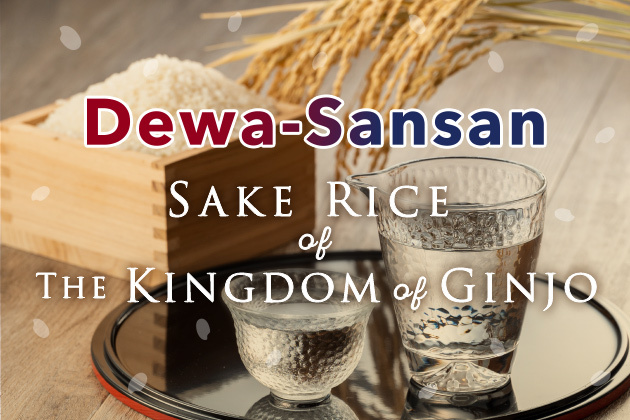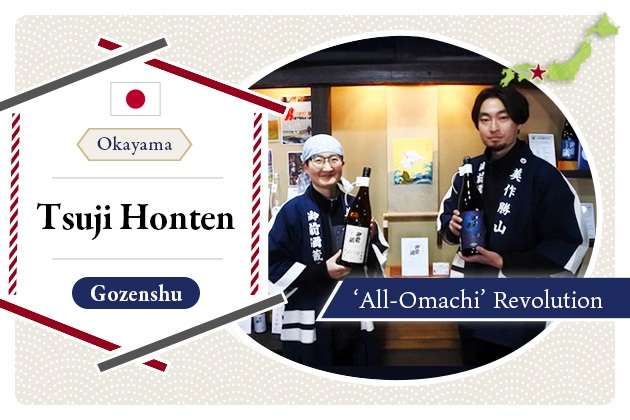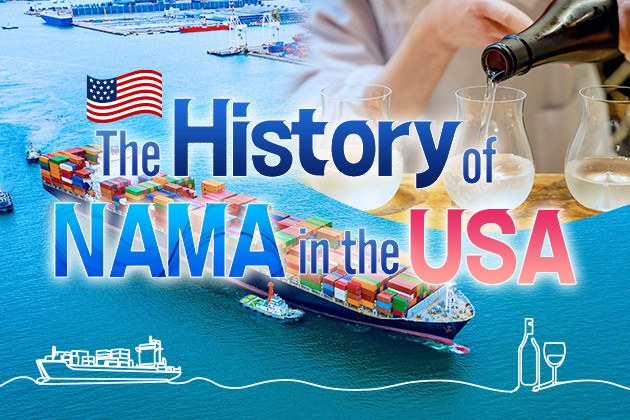
2024.08
23
Sake and SDGs(Part2) - How Can Sake Contribute to Society's Needs?
In recent years, corporate efforts to meet the Sustainable Development Goals (SDGs) have been emphasized. The sake industry, where many of the old systems and practices remain, has been faced with a strong need to confront these changes. This special feature, "Sake and the SDGs," examines the possibilities of each of the 17 goals of the SDGs, looking beyond image strategies and transient efforts to consider what sake can do to realize a sustainable society from the ground up.
People are probably familiar with many of the common conversations about sake and alcohol, whether they’re discussing potential health benefits of alcohol, drinking in moderation, and hearing inspiring stories and philosophies around ingredients and methods used to make these wonderful beverages, we don’t often talk about this industry in relation to its “societal” aspects
In the first part of this series, we discussed eight goals from the perspective of theNature/Environment and Health/Safety.In the second part, we discuss the sake workplace and norms in sake culture and how they contribute to our life and goals.
Part 3: Job Satisfaction/Equality
Sake and Gender
In "The Global Gender Gap Report 2024," a gender gap index published by the World Economic Forum that measures gender inequality, Japan ranked 118th out of 146 Countries. As countries around the world continue to improve their gender gaps, Japan's backwardness remains a major challenge.
In the sake industry, women were historically forbidden to enter the sake brewing industry, and there are still very few female workers; what initiatives does the sake industry need to take to achieve the fifth goal of the SDGs, Gender Equality?
Employment
There are many long established cultural beliefs in the brewing industry that have had an impact on women working in sake breweries. The idea that women are not capable of physical work inside the brewery and the idea that women, after giving birth, should remain home and raise children, are two beliefs that have prevented women from working in breweries.
To this end, we are seeing some breweries modifying the physical aspects of sake production to make work easier for all employees. Breweries are also looking at shortened work schedules and other solutions that allow more work-life balance for families with children. These kinds of efforts will eventually lead to more women working at sake breweries.
We must not forget that a good workplace for women is a good workplace for everyone. As one of the Japanese industries that has long had a system in which men work and women support the family, it is necessary to start by changing attitudes in order to solve gender issues. As a contribution to this effort, we plan to explore the theme of "Women in the Sake World" as a separate feature in this media in the future.
Targeting in Sales
Another gender issue in sake is gender-based targeting.
Some products of sake in Japan are often advertised with phrases such as "easy to drink and popular with women.” These phrases are thought to arise not only from the biological reason that women have smaller livers and break down alcohol more slowly than men, but also from the social image that women don't drink much alcohol.
However, advertising and promotion targeting specific genders has been banned outside of Japan. In the United Kingdom, advertisements representing gender stereotypes have been banned since 2017. The government is now cracking down on expressions such as "men don't cook" and "women like pink," which assume that people of different genders are good at certain things and bad at others, or stereotypes about preferences.
In Japan, advertisements that stereotype gender roles or portray women as subservient to men have been increasingly criticized. Nevertheless, the goal of correcting stereotypes in advertising is not to escalate negative discussions, but to make people aware of unconscious bias.
Currently, overseas exports of sake continue to grow in both volume and value, but the aforementioned unconscious bias in Japan should be noted as it will be highlighted even more in global markets. How do people living in an environment full of racial and ideological diversity carefully respond to unconscious prejudice? We must never forget this in order for sake to become a global alcoholic beverage.
Sake and Working Environment
The Japanese edition of SAKE Street did a special feature on the working environment of sake breweries. The results of a survey of brewery workers revealed problems, mainly long working hours, inadequate pay and lax safety management. In a roundtable discussion, (former) workers who have actually worked in the field discuss the causes of these problems.
The SDGs also address the improvement of working environment issues in the eighth goal, Decent Work and Economic Growth, explaining the need for everyone to be able to do work that is fulfilling and humane, and to be paid the same amount for the same work.
This section includes the following target:
Achieve higher levels of economic productivity through diversification, technological upgrading and innovation, including through a focus on high-value added and labour-intensive sectors
The sake brewing industry, which tends to place a high value on handcrafting and traditional methods, could be described as a labour-intensive industry. The special feature above introduces cases of breweries that are trying to reduce the workload of their workers.
The goal also includes the need for government support for small and medium-sized enterprises, the creation of jobs in rural areas and the promotion of tourism. In order to improve the working environment, it is not only important for one company to make an effort in these areas, but also to encourage support from the government.
Sake and Diversity
Adjacent to the working environment issue is the tenth goal “Reduced Inequalities." It aims to ensure equal social, economic and political opportunities for all people, regardless of age, gender, disability or ethnicity.
The first example of support for people with disabilities through sake is in agriculture. In Hyogo Prefecture, Kenbishi Sake Brewery cooperates with a facility for people with disabilities, Dendenmushi no Ie (House of Snails), to sell a limited-edition sake called Nanden-no, made from rice grown by people with disabilities, on a regional basis. While Kenbishi's standard product is a blend of sake that has been matured for at least a year, Nanden-no is only available for a short period of six months after brewing, as the sales are immediately returned as salary.
In addition, Sekiya Brewery in Aichi Prefecture has outsourced work such as making product necklaces and cushioning materials to facilities for people with disabilities. Projects such as Tatenokawa Sake Brewery in Yamagata Prefecture and haccoba, a Craft Sake brewery in Fukushima Prefecture, which uses artwork by people with disabilities for labels and packaging, are also spreading.
Furthermore, the number of foreign workers in Japan reached a record high of 1,822,725 at the end of October 2022. This represents a 2.7-fold increase from 2012, a decade earlier. Along with the decline in the number of young workers, the employment of foreigners in breweries is expected to increase in weight in the future, and the development of a working environment that can accommodate people with diverse ideas is becoming increasingly important.
Sake and Innovation
The ninth goal, "Industry, Innovation and Infrastructure", promotes the development of industrial infrastructure and new technologies that contribute broadly to society.
The recycling-oriented agriculture being undertaken by Kobe Shushinkan in Hyogo Prefecture, in collaboration with Kobe City, JA Hyogo Rokko, Konica Minolta and others, is an example of this. Through the production of sake rice, the project uses remote sensing (advanced image analysis) by drone and growth surveys using Kobe Harvest, a recycled phosphorus fertiliser recovered from the sewage system of Kobe City. In 2022, Fukuju Junmai Ginjo Yamadanishiki KANNA, brewed with the rice produced within the project, was released.
Thus, innovation in sake can be achieved through cooperation with outside organizations, such as agriculture and research institutes, to implement environmentally friendly initiatives, to promote regional development, and to develop new technologies.
Part 4. Possibility in Other Goals
So far, we have looked at each of the SDG goals in terms of Nature/Environment, Health/Safety, Job satisfaction/Equality strongly related to sake. Finally, let us consider the possibilities for sake's involvement in the five goals that we have not yet covered.
1. No Poverty
The first goal of the SDGs is to eliminate all forms of poverty from the world. Nowadays, poverty is an issue not only in developing countries but also in developed countries. In Japan, the latest survey (conducted in 2018) by the Ministry of Health, Labor and Welfare found that one in seven children does not have an average standard of living.
Sake is an industry that is difficult to engage with children, as they must be at least 20 years old to consume alcohol under the Japanese law. However, the Nippon Foundation, for example, has proposed the provision of a "third place for children" after home and school, and it is possible that sake breweries could provide space for such an initiative.
A third place is a place where children with economic or family difficulties can drop in, with the aim of creating a system that prevents isolation and encourages self-reliance by providing a connection to the community.
Kamosuku in Oguni-machi, Yamagata Prefecture, is a café and coworking space renovated from the stone warehouse of the Sakuragawa Sake Brewery in the same area, and the project is designed to become a third place for children. As a sake brewery that has contributed to the community as the center of the region, there are many things it can do for children.
4. Quality Education
The Kano family, brewers of Kiku-Masamune and Hakutsuru sake breweries, located in Nada-Gogo, a famous sake brewing area, is also known for having founded Nada Junior High School, a prestigious school (the former Yamamura Brewery of Sakura Masamune also invested).
The Tatsuuma Honke Brewery, the brewer of Nada's Hakushika, also in Nada, operates a nursery school, kindergarten, junior high school, and high school as part of its group business. The nursery schools and kindergartens offer childcare support, such as daycare and opening their yards to preschool children, which is noteworthy from the perspective of the SDGs.
Another sake brewery involved in educational activities is the Kumazawa Brewing Company in Kanagawa Prefecture, which operates nursery schools and culture classes. By emphasizing hands-on experiences in the greenways of satoyama, the company aims to help children understand the importance of living in harmony with nature from an early age.
In addition, there are other possibilities for sake to be involved in food education through agriculture. Hakutsuru Sake Brewery has established a rooftop farm "Hakutsuru Ginza Tenku-no-en (Sky Farmstead)" at its branch office in Ginza, Tokyo, and invites local children to participate in rice planting and harvesting.
14. Life Below Water
This goal is to prevent marine pollution and protect the ecosystem. As an example in the sake industry, Niizawa Brewery in Miyagi Prefecture is working to simplify cleaning and reduce detergent consumption by painting floors.
Sake has long been said to go well with seafood, and it has been scientifically proven that sake masks the fishy smell of fish. By proactively proposing pairings using "underutilized fish," which are difficult to distribute due to their small size, irregularity, and low catch, and by offering processed products and subscription services that combine sake with them, we may be able to raise awareness of food loss.This may help to raise awareness of food loss.
16. Peace, Justice and Strong Institutions
With the Russian invasion of Ukraine beginning in February 2022, there has been a movement in the Japanese sake industry to sell products to raise funds for Ukraine in hopes of peace.
Even after the Russian invasion of Ukraine began, domestic wine production has continued in Ukraine as an expression of resistance (As of April 2023). While foreign wines used to be highly regarded in Ukraine, many people now buy domestic wines to support the domestic industry. As a sign of support, they are receiving orders from Europe as well. Not only sake breweries, but also liquor stores and restaurants supporting Ukrainian wine producers can also be a way to support a country in a time of war.
This goal is not limited to war, but also to the elimination of all forms of violence, including abuse and human trafficking. Peace is a vast subject, and it may seem difficult to connect it to sake, but to grow as an international alcoholic beverage, it is increasingly necessary to express our will for peace and to imagine what we can do from a familiar perspective.
17. Partnerships for the Goals
The final goal of the SDGs speaks of the need to build all kinds of partnerships and connections among international organizations, public institutions, the public and private sectors, and civil society in order to realize these SDGs in developing countries.
In October 2022, the "Japan-Bhutan Food Culture Exchange Symposium" was held in Thimphu, the capital of Bhutan, with sake as the theme, and Tsuchida Sake Brewery from Gunma Prefecture gave a presentation on brewing techniques. This is because Bhutan has a traditional culture of making brewed sake from rice, which is considered to have a high affinity with sake.
In addition, in 2022, Wakayama Prefecture's Heiwa Shuzo provided technical guidance to Vietnamese brewer East West Brewing Co. In this way, the expansion of sake into the global market has created partnerships with local communities, creating employment through the construction of sake breweries, technical assistance, and the development of new sake products that combine the cultures of both countries, all of which show the potential for achieving goals through partnerships.
Summary
This special feature was planned with the hope that it will help people think about how sake can contribute to each of the SDGs, rather than simply addressing each one individually.
The 17 goals of the SDGs were created out of an awareness of the challenges of our time: the pursuit of wealth by a few people for their own personal gain creates global imbalance and leads to problems such as poverty, conflict, and climate change. In other words, these goals can only be achieved if all people have a global perspective to live happily and are able to imagine people surrounded by environments different from their own.
We must know what is happening in the world, and think of ways to connect it to the sake that is familiar to us, and propose ways to do so. Sake media such as ours have an important role to play in this process.
Sake is currently facing an ambivalent situation: exports are expanding and global recognition is growing, while the domestic market is shrinking, and its raison d'être is being questioned in a health-conscious world. Through the theme of the SDGs, sake will become a global beverage as well as a necessity for those who do not drink alcohol, which will lead to the "sustainability" of sake itself.
References
- Gender Equality Bureau Cabinet Office, 共同参画 2021年5月号 [Joint Participation, May 2021 Issue]
- Gender Equality Bureau Cabinet Office, 就業者数の推移、産業別雇用者の男女別・雇用形態別の割合 [Number of workers, and percentage of employees by industry, by gender and by employment type]
- Mainichi Shinbun, 男社会の酒造業界を変える『女性杜氏』たち [Female Toji Changing the Male-dominated Sake Brewing Industry]
- Asahi Shinbun Digital, 岩手)『女性初』背負った平成 基本残し時代にも合わせ [(Iwate) “The first woman to carry the Heisei era on her back, leaving the basics behind and adapting to the times]
- Ministry of Health, Labour and Welfare, 『外国人雇用状況』の届出状況まとめ(令和4年10月末現在) [Summary of Status of Employment of Foreign Nationals (as of October 31, 2022)]
- Ministry of Health, Labour and Welfare, 2019年 国民生活基礎調査の概況 [2019 National Survey of Basic Living Conditions Overview]
- Nippon Foundation, 子ども第三の居場所 [The Third Place for Children]
- Hiromi Kaneko, 料理に使う日本酒の効果 [Benefits of Sake for Cooking], Journal of the Brewing Society of Japan 105-7, 2010
- NHK, 未利用魚とは 行き場のない魚をサブスクで有効活用 [What is unutilized fish? Fish with no place to go are put to good use in subs]
- Aljazeera, Inside Ukraine’s wartime wine industry
- 47News, 【インド】ブータンで日本酒シンポジウム、大使館主催[食品], [India] Sake Symposium in Bhutan, organized by the Embassy of Japan [Food]
Series "Sake and SDGs"
Part1: What are the Essential Initiatives that are not Greenwashing?
Part2: How Can Sake Contribute to Society's Needs?
Pickup Articles
2019.01.18
2019.01.25
Trending Articles
Popular Articles
Recent Articles













